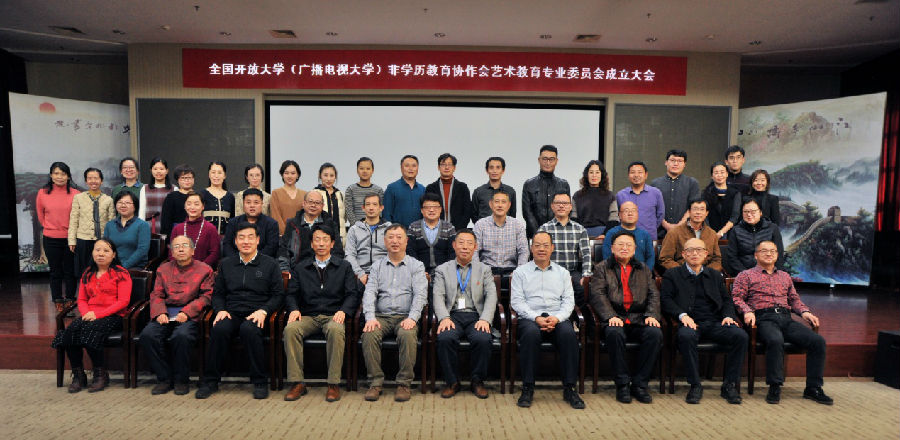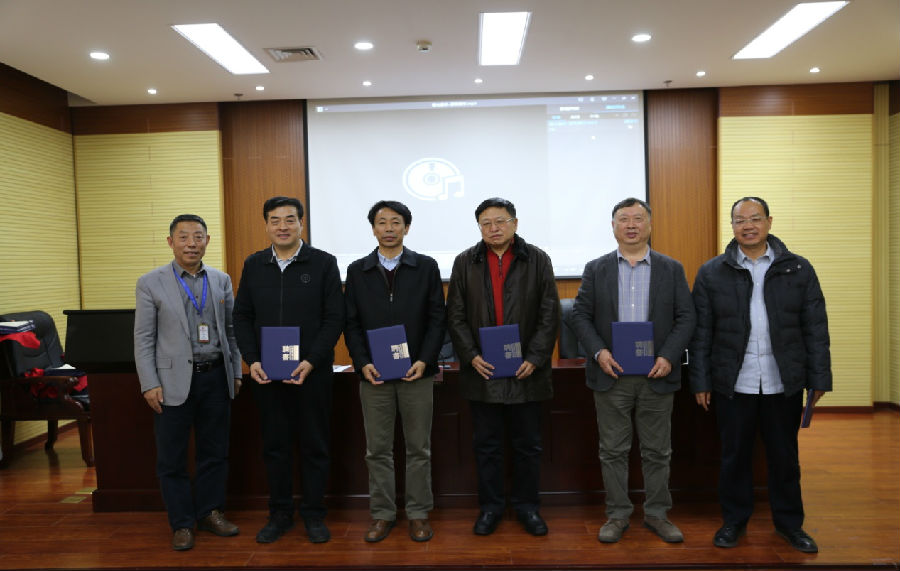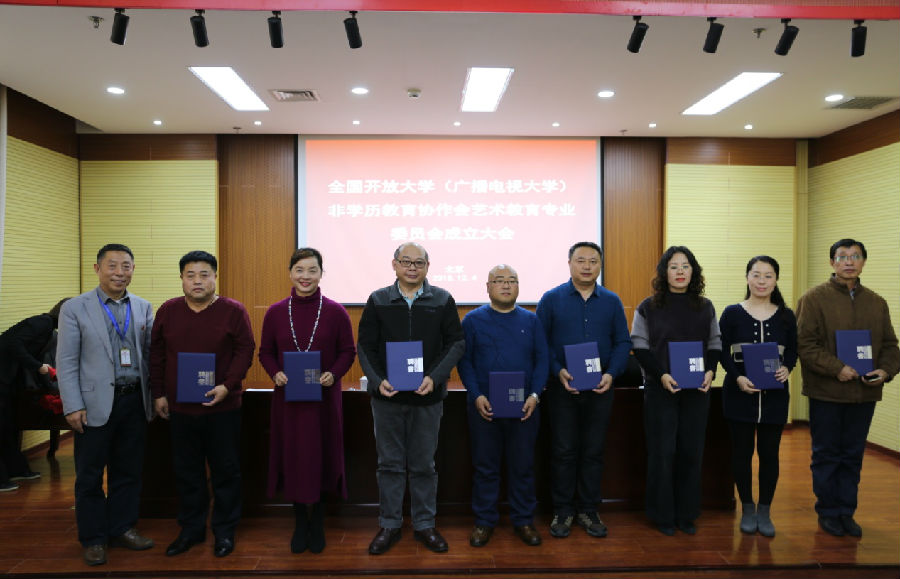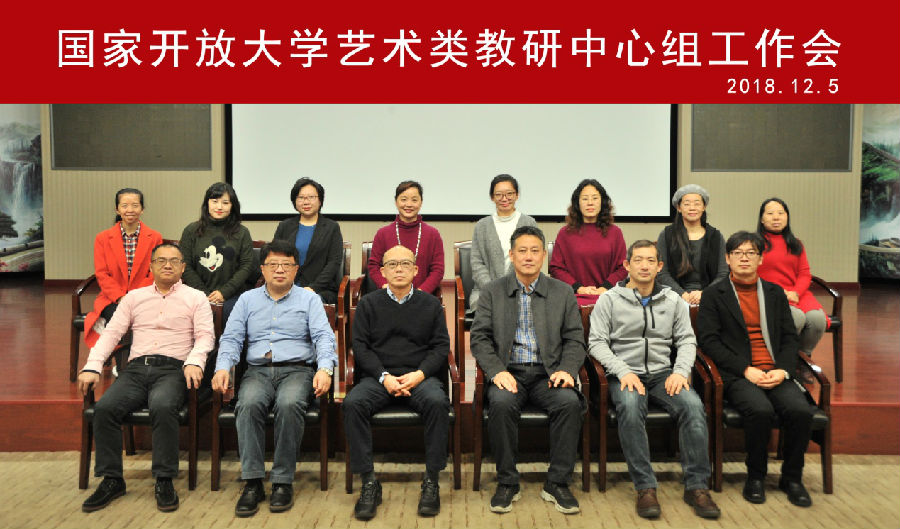 From 4-5 December 2018, a conference on the establishment of the Committee for Art Education Professionals of the Non-Degree Education Collaborative Association for National Open Universities (Radio and Television Universities, or RTVUs) was held in Beijing alongside the 2018 Art Teaching and Research Central Group Seminar. The Committee for Art Education Professionals is the first professional committee established by the Non-Degree Education Collaborative Association.
From 4-5 December 2018, a conference on the establishment of the Committee for Art Education Professionals of the Non-Degree Education Collaborative Association for National Open Universities (Radio and Television Universities, or RTVUs) was held in Beijing alongside the 2018 Art Teaching and Research Central Group Seminar. The Committee for Art Education Professionals is the first professional committee established by the Non-Degree Education Collaborative Association.

A total of 41 people, including Liu Chen, deputy secretary of the Party Committee of the Open University of China (OUC), Wang Qifu from the Secretariat of the Non-Degree Education Collaborative Association for National Open Universities (RTVUs), Tang Yingshan, the director of the OUC Faculty of Humanities, leaders and teachers from the OUC’s various branches (RTVUs) engaged in art, elderly, and community education, and members of the art education research centre group of the national open university system, and a number of teachers from the OUC Faculty of Humanities participated in the meeting, which was presided over by Tang Yingshan.
It was pointed out at the founding meeting that, in accordance with the relevant requirements of accelerating the development of vocational education, the OUC is actively exploring a talent training model for vocational education that embodies the concept of lifelong education and the characteristics of open universities. At the time of transformation, the OUC is facing new opportunities and challenges. Non-academic education has become a historical mission of the OUC and successfully running non-academic education is one of its main tasks. The establishment of the Committee for Art Education Professionals will promote the communication, integration, and development of non-academic art education in the OUC system. It is hoped that the Committee for Art Education Professionals can explore a new path for the integration of non-academic and academic education, and that, through in-depth cooperation, resource sharing, and talent pooling, it can provide diverse, personalised, timely, and targeted teaching models, while at the same time, mutual discussions, building, management, sharing and mutual benefit will be achieved through the committee’s organisational mechanism. The Secretariat of the Association for Non-Degree Education will provide full support for the work of the committee.
During the meeting, the members were put into groups to discuss the charter and working mechanism of the non-degree Committee for Art Education Professionals, put forward opinions and suggestions for further improvement of the statute and working mechanism of the committee, and share the experiences gained from the art education activities carried out by their respective branches.
Liu Chen issued letters of appointment to and made concluding remarks for the consultants and members of the Committee for Art Education Professionals. Liu Chen pointed out that at the second meeting of the Fifth Council and the fourth meeting of the Standing Council of the Collaborative Association of Non-academic Education for National Open Universities (RTVUs) held in Xiamen, Fujian Province, in December 2016, five professional committees on community and elderly education, teacher training, online training for cadres, and art education were established. The Council has given clear requirements for the work of the various educational professional committees. It is hoped that the educational professional committees will actively and effectively explore collaborative models and working mechanisms, and give full play to the role of project development and collaboration, resource co-construction and sharing, personnel training and team building in various professional fields.


He pointed out that the further the non-degree education in the OUC school-running system moves towards the grass-roots level, the more prosperous it will be and the greater development opportunities it will have in the future. The Committee for Art Education Professionals should not only explore the research and development of non-academic art education in the OUC school-running system, but also provide services for academic education. It should shift its focus to community and elderly education and play a greater role in these areas. In addition, it should explore how to achieve real co-construction and sharing, and effectively use social resources to improve efficiency.
At the working meeting of the Art Teaching and Research Central Group in 2018, the members of the group introduced the construction of art majors in their respective branches. Four of the members shared cases of curriculum construction, characteristic majors, resource sharing, and teaching reform, respectively, including topics such as "Exploration of MOOC Development Art Courses", "Cooperative Educational Centre for the Inheritance of Rare Dramas in the Lingnan Region", "Research on the Deep Integration of Higher Vocational Education and Open Education Guided by Professional Culture”, and "Quality, Feelings, Thoughts, and Practice". Five research groups from the teaching and research central group reported on their research work over the past year and discussed their key work in 2019.

Following a discussion, all participants agreed that the conference has achieved the following results: new models for the construction of majors, including research and clarification of the direction of majors; the effective integration of open education and higher vocational education resources in the OUC system; the evaluation criteria of the results of the research team under the central group were formulated and the team members were restructured; the construction of a teaching team and learning support services were established as key points of curriculum reform and the theme of the training for key art teachers in 2019 was decided as "intangible cultural heritage and traditional culture".
By Yang Ying and Ren Tianchun, OUC